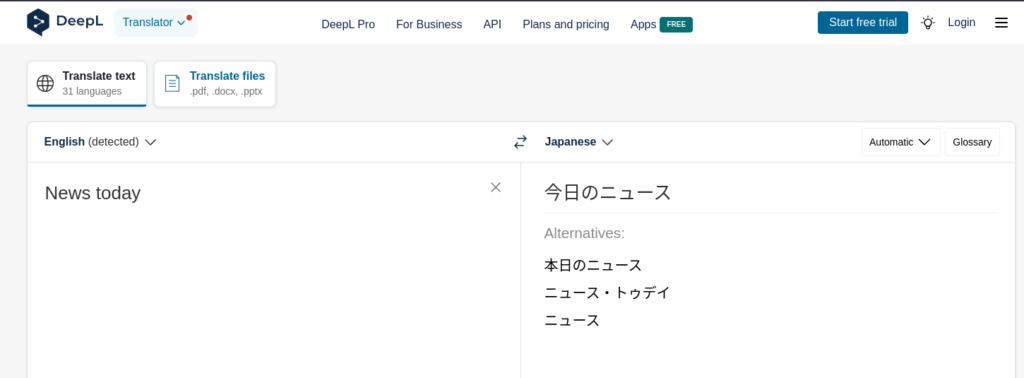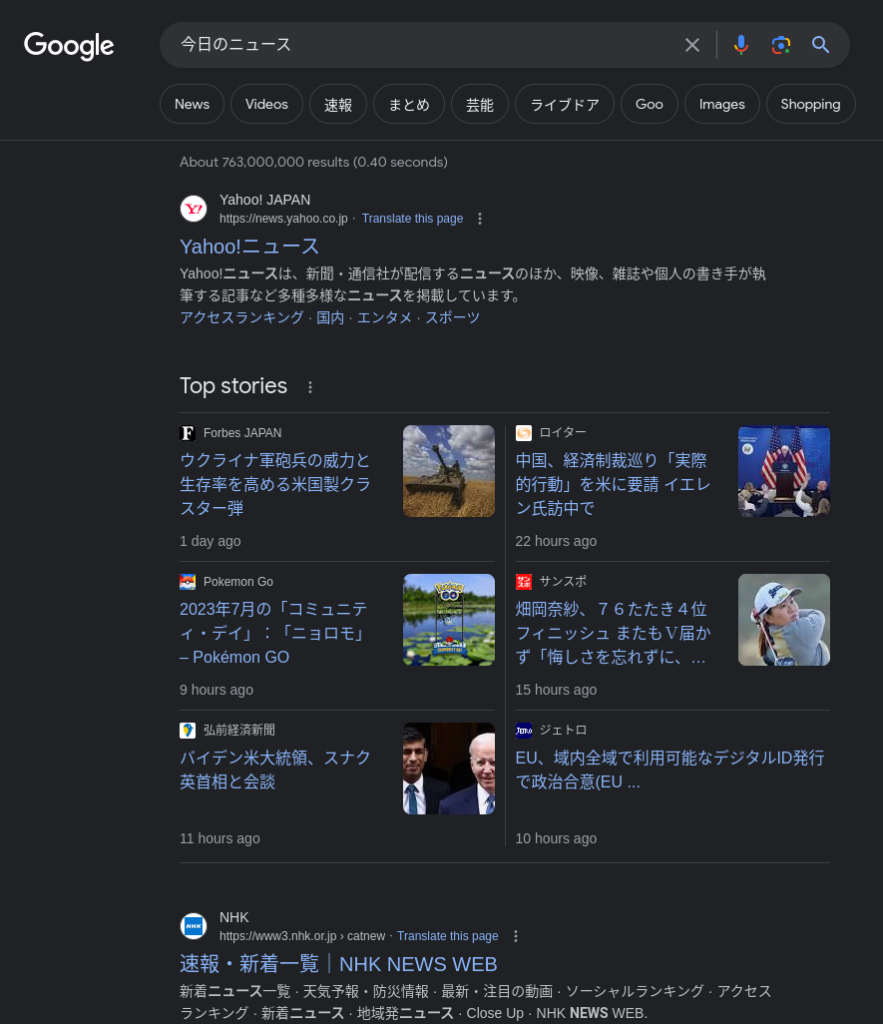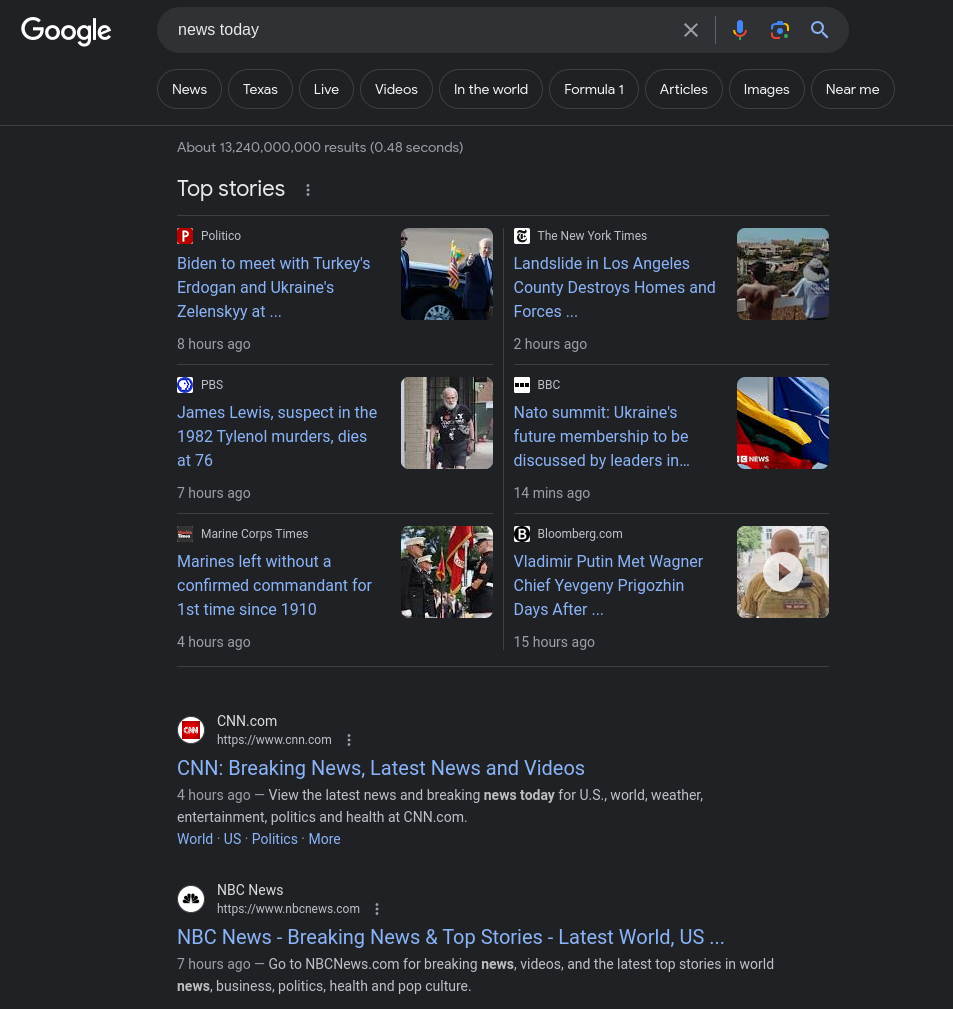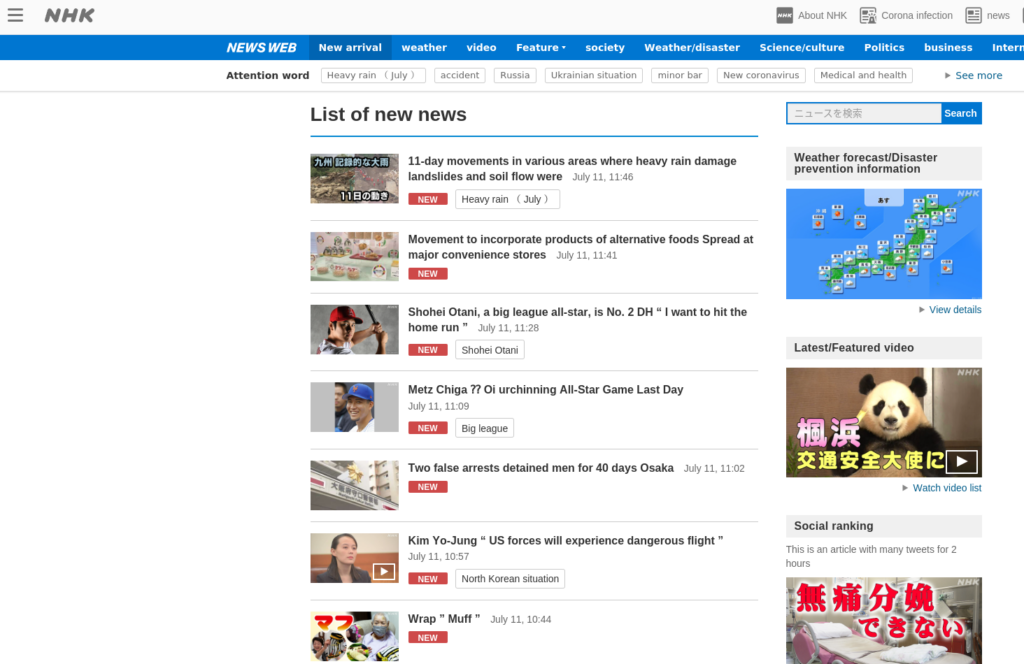Today I’m going to teach you a way of using the internet that I’ve never seen anywhere else.
Specifically how to view the internet in the same way as someone from another country.
You may have seen articles online about changing your location to another country using a VPN or Proxy (And those things certainly help). However this isn’t exactly what I’m getting at.
For general web searches the catch is that regardless of where your VPN is located, search engines will auto detect which language you are using and attempt to switch your results to the most likely results for your language.
Top-Level Domains
Another piece to the puzzle is something called “top-level domains”.
Readers in the USA will probably be familiar with the ‘.com’ domain or the ‘.net’ domain, however most other countries have their own special top level domains that designate websites meant for that country.
You can refer to this Wikipedia article for a list of all the top-level domains by country. For this article I will use the ‘.jp’ top-level domain.
Tools Required
Finally there are a few tools you need to make this work, a text translator and a web browser or browser extension that converts a whole page back to English.
There are many tools to achieve these tasks, however, most importantly I suggest Brave Browser for translating the web page. The reason for this is because Brave is able to actively translate a page as you view it rather than translating an iframe of the page or translating the whole page at once.
This really comes in handy on pages like a google search result that dynamically load more results as you scroll down. The only downside is it is finicky on occasion and doesn’t translate. In which case try switching back to the original language and back to English again.
Lastly you will need a normal translator of your choosing. Any will work, I use Deepl translate, only because it’s not Google.
Example: Searching from Japan
Generally you will want to start with a search engine. I can be frustrating finding one that works in a given country, however, as you may have guessed Google tends to work everywhere. So let’s start of by coming up with a search term and translating it into Japanese.

Next we paste that search term into www.google.jp which will redirect to www.google.co.jp

Your results will appear in Japanese as expected. I’d like to point out that if you had typed an English search term in the box and hit search Google will give you results assuming you are an American. So you will see things like CNN or MSNBC instead of Japanese news sources. In my testing Google will also attempt to retrieve your location at that point too. If you are using Brave you can block it though.
Here are my results in Japanese:

Here are my results if I type in English in a google.co.jp search box

As you can see, vastly different results based on the language alone.
So next is where the Brave translator comes in. As soon as google displayed the results in Japanese it may have already popped up. But at the right side of the address bar just to the left of the share button is a translate button like this.

Click that and switch the language to English. Sometimes you need to be patient, it may take a moment but you will start seeing it translate elements on the page. As you scroll down it will translate more text. This is key to this whole process and comes in handy once you select a web page.
In my example I opened the bottom link for NHK in a new tab and yet again I translated it with Brave Translate like so.

Repeat this process for each page you want to read.
Proxies and VPNs
I wanted to touch on this topic a bit because many people may be wondering if these are necessary. From my experience the answer is no.
The longer answer is it probably helps. Earlier in the article I mentioned Google tried to request my location when I searched from google.co.jp in English. While I have not tried this yet, I suspect if I was VPN’d or Proxied into Japan it would continue to give me results in Japanese.
Another instance this helps with is normal searches. As long as the country you are VPN’d into uses English the results will probably display from that country by default. If you are VPN’d into Poland though and search in English it may change the results.
But Why!?
Because I want to view the internet as if I am from another country. I think this is important because we get a lot of our worldview from what we see online. I often find myself feeling a certain way about an issue and wonder to myself why people in some other country overwhelmingly feel the opposite way.
Is Something Sinister at Play Here?
For the most part no. The search engine is simply trying to give you the results it thinks are most relevant to you. However, by looking at Poland’s version of the internet you can get an idea of Poland’s take on a subject, or at least their internet’s take on a subject… It’s unclear if our opinions form the results of Google or the other way around. And this is where I’ve made an observation that may be sinister.
In late 2019 I started noticing the search results from Canada and search results from the USA started to skew wildly. I had searched from both countries frequently and the results were usually similar aside from sites specific to each country, but seemingly overnight it was like a switch was flipped.
I would describe the difference as Canada having a healthy version of search results and news articles with mildly skewed but mostly lukewarm news articles and the USA version of search results suddenly having a heavy skew with bombastic news articles. Some people seemed totally wiped from the internet in the USA but appeared like normal in searches from Canada or any other country.
As I’ve used this method of searching general topics over the years I’ve noted the USA’s version of the internet seems dangerously toxic. The contrast is stark versus countries like Japan where things are dry and balanced. Useful information is trivial to find and web pages are cleanly designed with minimal clutter albeit their design is reminiscent of 2008 (refreshing actually =P).
Conclusion
All of this is brings my back to a post I read called ‘Dead Internet Theory‘ that described most of the internet being dead and comprised mostly of bots attempting to influence the public.
In 2023 with the public release of generative AI this seems more and more likely.
Regardless I suggest next time you are looking for some broad search query, try looking it up in Lithuania or Turkmenistan. Honestly given all the progression of technology we’ve achieved it’s amazing to me that search results don’t query across pages in other languages translated into English. It seems like we are likely missing a huge amount of human knowledge without such a thing.
Maybe I’m the only person that does this, but I like to think there’s some other weirdo out there besides me that is curious about this stuff. So at least here it is, documented, for someone else to try.